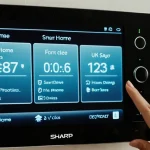UK-Developed Technologies Shaping Space Exploration
The UK space technology sector has significantly advanced key areas like satellites, robotics, and propulsion systems. British satellite innovation shines prominently with the development of miniaturised satellites, which offer efficient yet cost-effective solutions for space observation and communication. These compact designs allow for widespread deployment and enhanced data collection, crucial for international space missions.
In robotics, UK engineers have pioneered robotic arms and automated systems capable of performing complex tasks in harsh extraterrestrial environments. These robotic technologies increase mission safety and efficiency by reducing the need for human intervention. The integration of UK robotics in space applications not only supports satellite servicing but also plays a vital role in planetary exploration.
Also to discover : How Can UK Technology Drive Innovation in Healthcare?
Propulsion advancements in the UK focus on creating more reliable and energy-efficient thrusters. Breakthroughs here include electric propulsion systems that extend spacecraft operational life and reduce fuel requirements. These propulsion advancements UK-wide contribute to longer missions with improved maneuverability.
Together, these UK-developed technologies influence global space exploration by enhancing payload capabilities, mission flexibility, and operational longevity. Importantly, the British satellite innovation combined with UK robotics and propulsion systems positions the UK as a crucial contributor to international collaborative missions.
Also read : How Can Emerging UK Technologies Revolutionize Global Industries?
Major UK Space Missions and Contributions
The UK-led space missions reflect the country’s growing influence in global space exploration. A standout example is the UK’s involvement in the ExoMars Rover project, where British technology contributes crucial instruments designed to analyze Martian soil. This mission highlights the precision and reliability of British spacecraft components, demonstrating the UK’s capability to produce equipment suited for interplanetary environments.
Another significant contribution comes from participation in the Galileo GPS project. The UK’s technological input enhances the system’s accuracy and security, which benefits not only European navigation but also global users. This collaboration underscores how UK innovation integrates seamlessly within multinational efforts.
Beyond these, the UK has supplied science payloads on various ESA and NASA probes, showcasing its commitment to advancing space science. These payloads include high-precision sensors and communication modules, reaffirming the UK’s role as an essential partner in international missions.
Together, these missions provide the UK with not just technical achievements but also considerable global recognition. They emphasize how British space technology offers reliable, cutting-edge solutions that support the broader quest to explore and understand our solar system.

